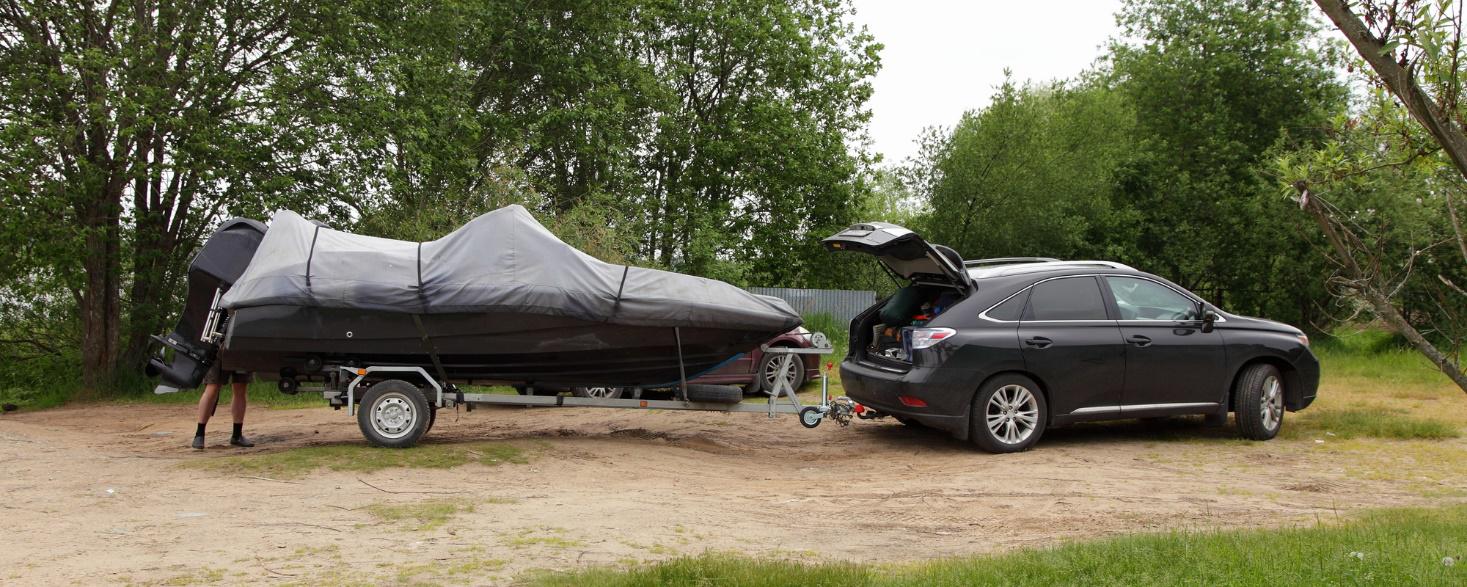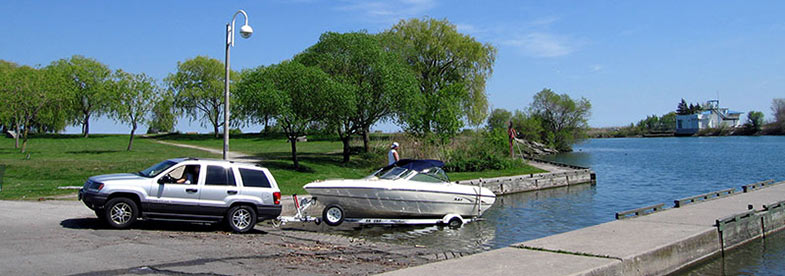Is Your Towing Ruining Your Transmission?

Now that the weather is warm and kids are out of school, more Canadians are strapping up their boats and trailers and hitting the open road. While you may not think much of it, towing, even for short distances, can do significant damage to your vehicle’s transmission. Not all towing has to be detrimental, however. If you maintain your vehicle and avoid common errors, you can prevent costly damage to your transmission.
Will Towing a Trailer or Boat Damage My Car?
Imagine running a marathon in the height of summer without enough hydration. Your body will be dehydrated and won’t function optimally. You may even suffer exhaustion and collapse from insufficient fluid levels.
It’s the same with your vehicle. If towing a trailer or boat, your vehicle will work harder due to the excess weight. If your fluid levels are low or the fluid hasn’t been changed according to the manufacturer’s specifications, your vehicle’s engine and transmission become heated, creating a pressure cooker effect. Metal components may harden and seal up.
Trailer sway can also cause serious damage to your vehicle. An unbalanced trailer that sways from side to side will put extra stress on the vehicle’s engine and components, shortening their lifespans.
It’s best to take your vehicle in for auto repair in Vancouver and have all fluid levels checked to ensure they’re clean and adequate for towing.
Towing And Brakes
In addition to the transmission, the brakes must also be up to the task. If you’re towing a heavier trailer than your brakes’ towing capacity, you may be unable to stop. That’s incredibly dangerous for you and other motorists. Moreover, you’ll quickly wear away your brake pads and rotors. In short, you’ll need more frequent professional brake servicing than you would if you towed within your vehicle’s limits.



How To Tow Without Damaging Your Vehicle
When done correctly, towing a trailer or boat shouldn’t damage your vehicle. Here are a few tips on how to protect your transmission while towing:
- Stay in your comfort zone. Be aware of your driving skills and your vehicle’s ability to handle heavy loads. If you’re uncomfortable with the situation, it’s best not to try.
- Slow down. Give yourself plenty of time to get where you’re going. A vehicle hauling a big load needs more time and distance to stop, so give yourself enough reaction time. Moreover, accelerate and brake slowly to minimize the stress on your engine and brakes.
- Read the owner’s manual. It contains vital information like your vehicle’s payload and towing capacity so you can stay within recommended limits.
- Check your hitch. Ensure your hitch is compatible with your trailer. Invest in sway bars to prevent your trailer from swaying back and forth while driving down the highway in strong side winds.
Finally, schedule a maintenance tune-up with a professional technician to ensure the fluids and components are in good enough shape for the long haul.
How to Check the Rated Towing Capacity of Your Vehicle
Towing capacity differs from the payload. Payload refers to the maximum weight you can carry inside your car or truck, including passengers. On the other hand, towing capacity refers to how much weight you can safely pull behind your vehicle in a trailer. Towing capacity is far greater than payload because the trailer’s axles carry much of the weight.
You can find the vehicle’s towing capacity in the owner’s manual or calculate it yourself by subtracting the truck’s curb weight from the GCVWR, or Gross Combined Vehicle Weight Rating. Find the GCVWR on a plate attached to the sidewall of the driver’s side door. This rating includes the maximum weight of your loaded truck and the weight of its attached trailer. You can find your vehicle’s curb weight online or from a dealership.
Common Towing Mistakes That Damage the Transmission and Your Vehicle
Does towing always damage a car? Not if done correctly. Here are some common towing mistakes to avoid:
- Not Paying Attention to Ratings. A vehicle has a maximum tow rating. If you overload your vehicle with a trailer that exceeds the recommended weight, it can lead to a whole host of issues. These problems may include a broken suspension, overheated transmission and failing brake systems.
- Not Checking Tire Pressure. Tires should be properly inflated whenever you go on a long road trip, especially before towing a trailer. Under-inflated or over-inflated tires create friction and force your vehicle to work harder than necessary to get moving. You may even run the risk of a tire blowout.
- Manual Versus Automatic Transmissions. Manual transmissions often perform better than automatic transmissions. When towing with an automatic, pay attention to acceleration and avoid cruise control. If you attempt to accelerate too fast while towing, it can overheat your transmission.
If you don’t pay attention to your vehicle’s payload and towing capacity, you can — while towing a car, trailer or boat — damage the transmission.
Transmission Repair in Vancouver and the Lower Mainland
Minit-Tune & Brake Auto Centres can help ensure your transmission fluid levels are adequate and able to cool your vehicle. With a transmission check-up, we can help you get on the road this summer without any worry. Visit one of our convenient locations in B.C. and Alberta, or contact us to book an appointment.
MINIT-TUNE BLOG
Minit-Tune & Brake Auto Centres Address Common Issues
Here at Minit-Tune & Brake Auto Centres in British Columbia, we’re always pleased to help our customers get the most out of their cars and trucks. To that end, we’ll add a relevant blog topic from time to time to keep you up to date and getting the most out of your vehicle.
